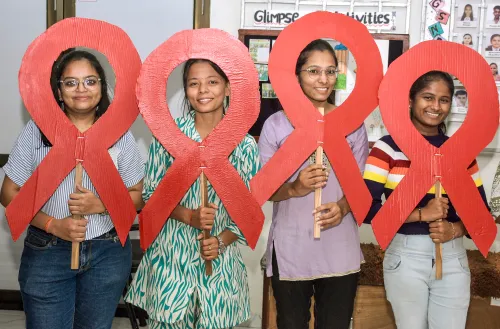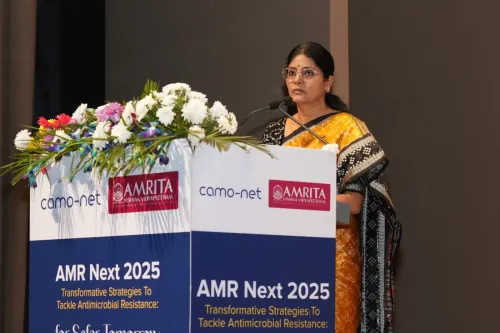Should Countries Invest in Health Systems to Support Breastfeeding Mothers?

Synopsis
Key Takeaways
- Breastfeeding is critical for infant health and acts as a first vaccine.
- Only 48% of infants under six months are exclusively breastfed.
- Investment in breastfeeding support yields significant economic returns.
- Countries need to prioritize breastfeeding support systems.
- Healthcare providers require adequate training to support new mothers.
New Delhi, Aug 6 (NationPress) The World Health Organization has called on nations to prioritize investments in health systems and provide essential support to breastfeeding mothers, as this is key to enhancing children’s health, development, and survival during their crucial early years.
Breastfeeding serves as a vital component of infant health, functioning as their initial vaccine and safeguarding against ailments such as diarrhoea and pneumonia.
Every year, World Breastfeeding Week is observed during the first week of August.
“Investing in breastfeeding is an investment in our future; however, only 48 percent of infants under six months are exclusively breastfed, falling short of the World Health Assembly target of 60 percent by 2030. This shortfall is attributed to various challenges faced by new mothers, health workers, and health systems,” stated WHO Director-General Dr. Tedros Adhanom Ghebreyesus and UNICEF Executive Director Catherine Russell in a collaborative statement.
Experts highlighted that countless mothers globally lack timely and skilled support within healthcare settings when they need it the most.
According to WHO data, merely one-fifth of countries incorporate infant and young child feeding training for doctors and nurses caring for new mothers.
“As a result, the majority of mothers leave hospitals without adequate guidance on breastfeeding and the introduction of complementary feeding,” the statement continued.
Additionally, many health systems around the globe are often underfunded, fragmented, or inadequately equipped to provide quality, consistent, and evidence-based breastfeeding support.
“Despite the fact that every dollar spent on breastfeeding support yields $35 in economic returns, investment in this area remains alarmingly low,” the statement read.
This year's theme is “prioritize breastfeeding: create sustainable support systems.” The WHO and UNICEF have urged governments and health administrators to invest in high-quality breastfeeding support by ensuring sufficient funding for equitable and quality maternal and newborn care, including breastfeeding services.
They also called for increasing national budget allocations for breastfeeding programs, integrating breastfeeding counseling and support into standard maternal and child health services, and ensuring that all healthcare providers possess the necessary skills and knowledge to assist breastfeeding, including in emergency and humanitarian situations.
Furthermore, the global health organization emphasized the necessity of fortifying community health systems to ensure every new mother has access to ongoing breastfeeding support for up to two years and beyond.
“Enhancing health systems to support breastfeeding transcends mere health necessity; it stands as a moral and economic requirement,” the statement concluded.










